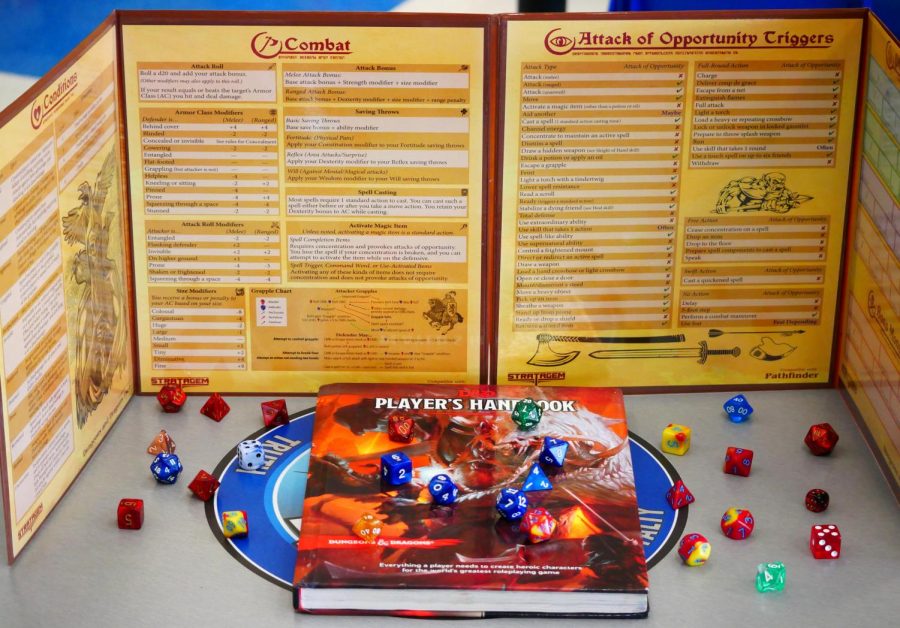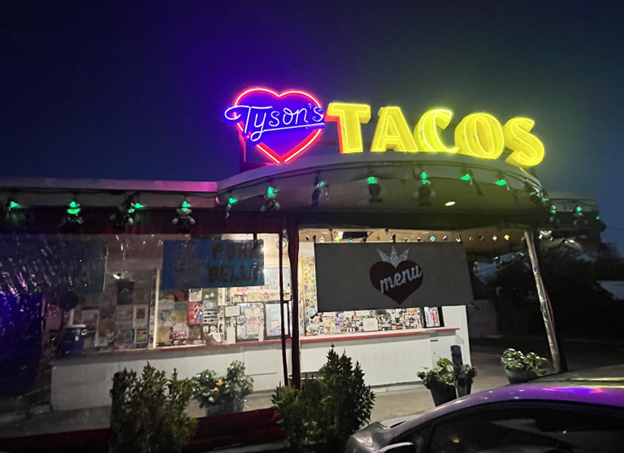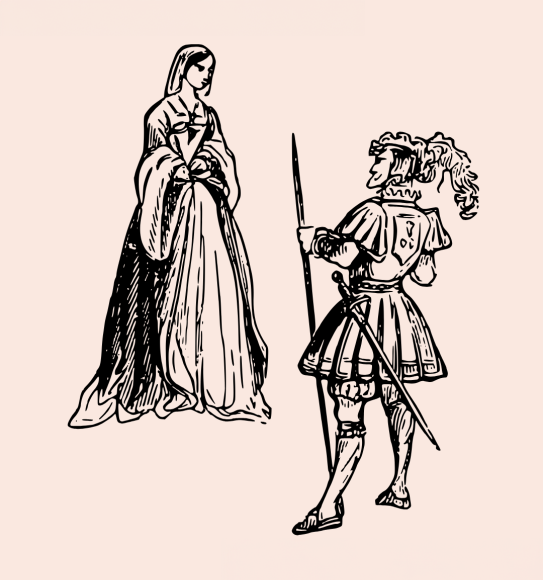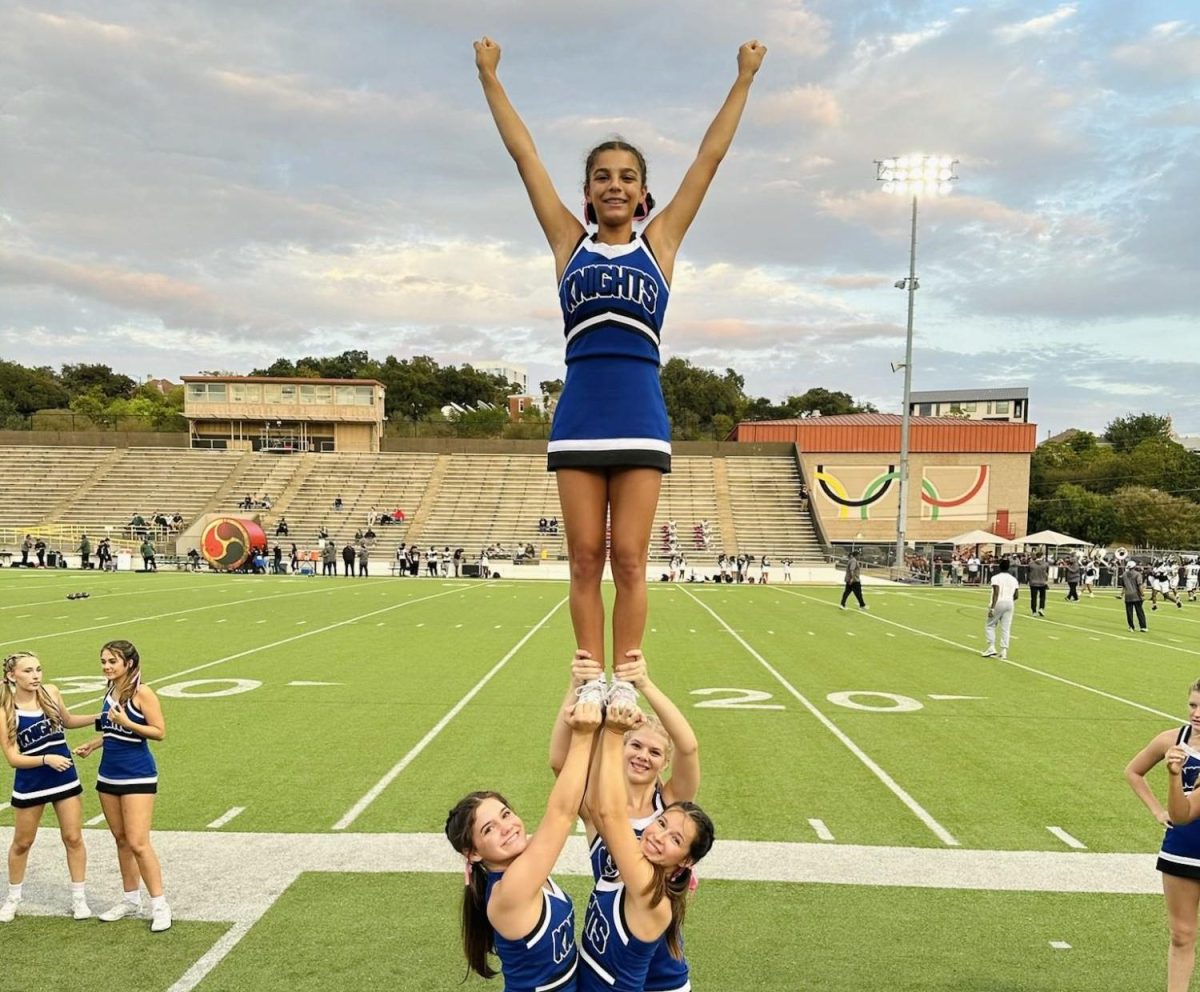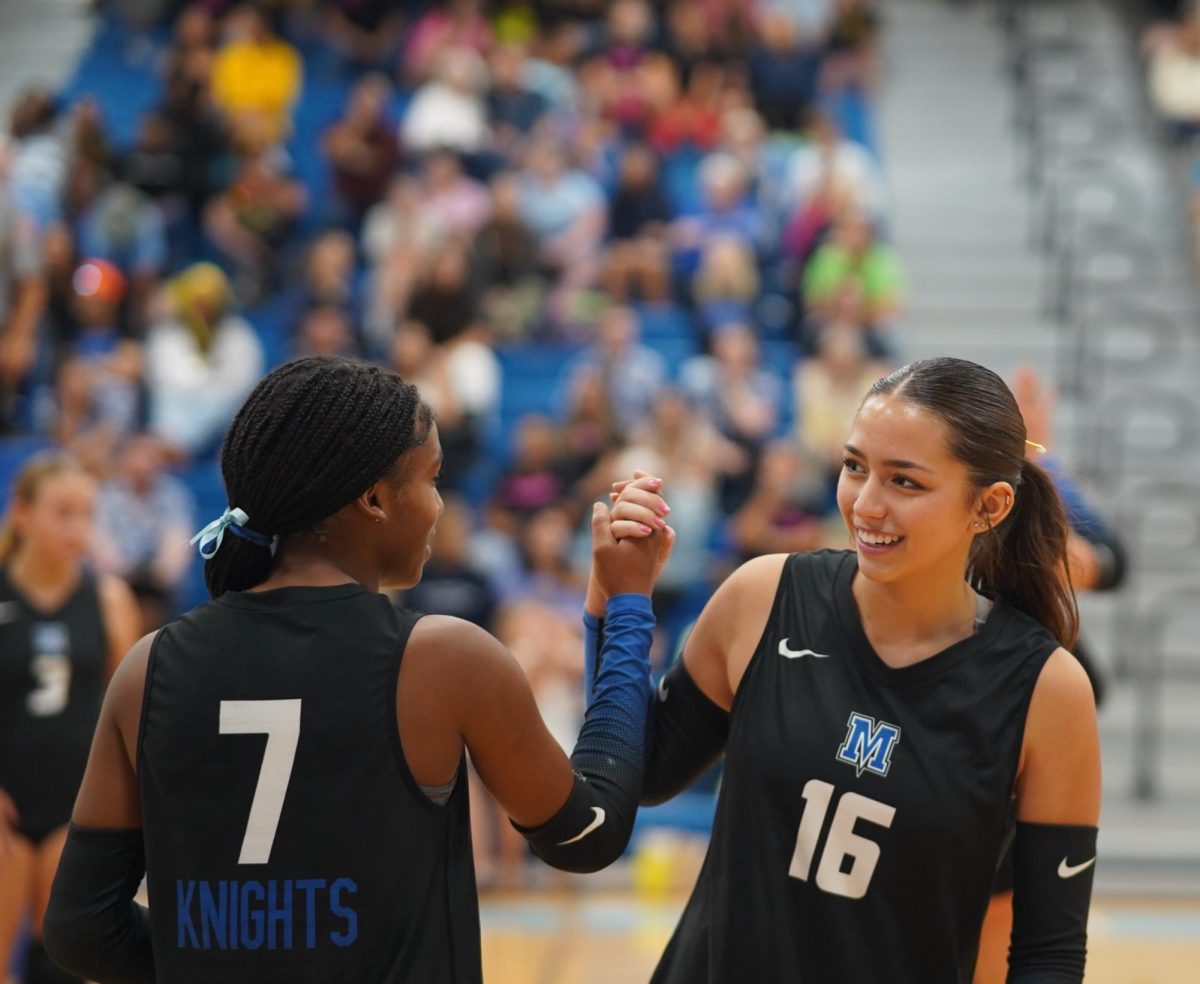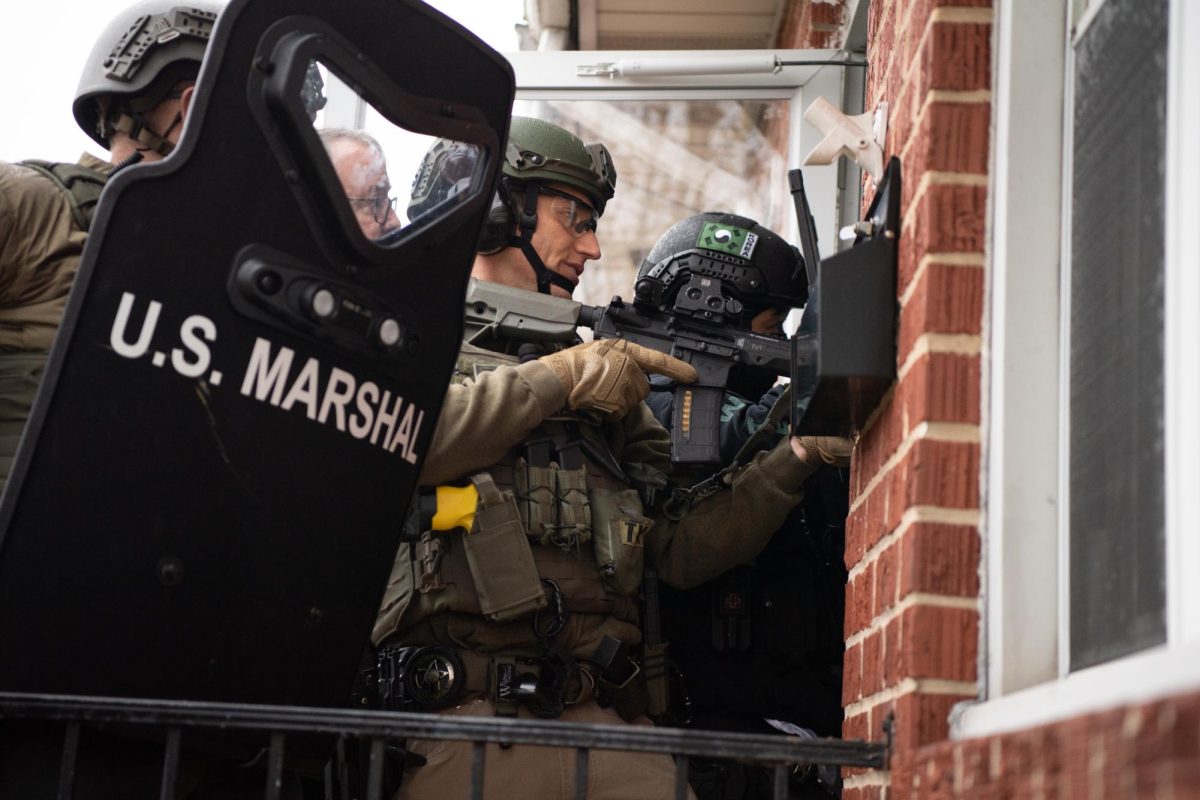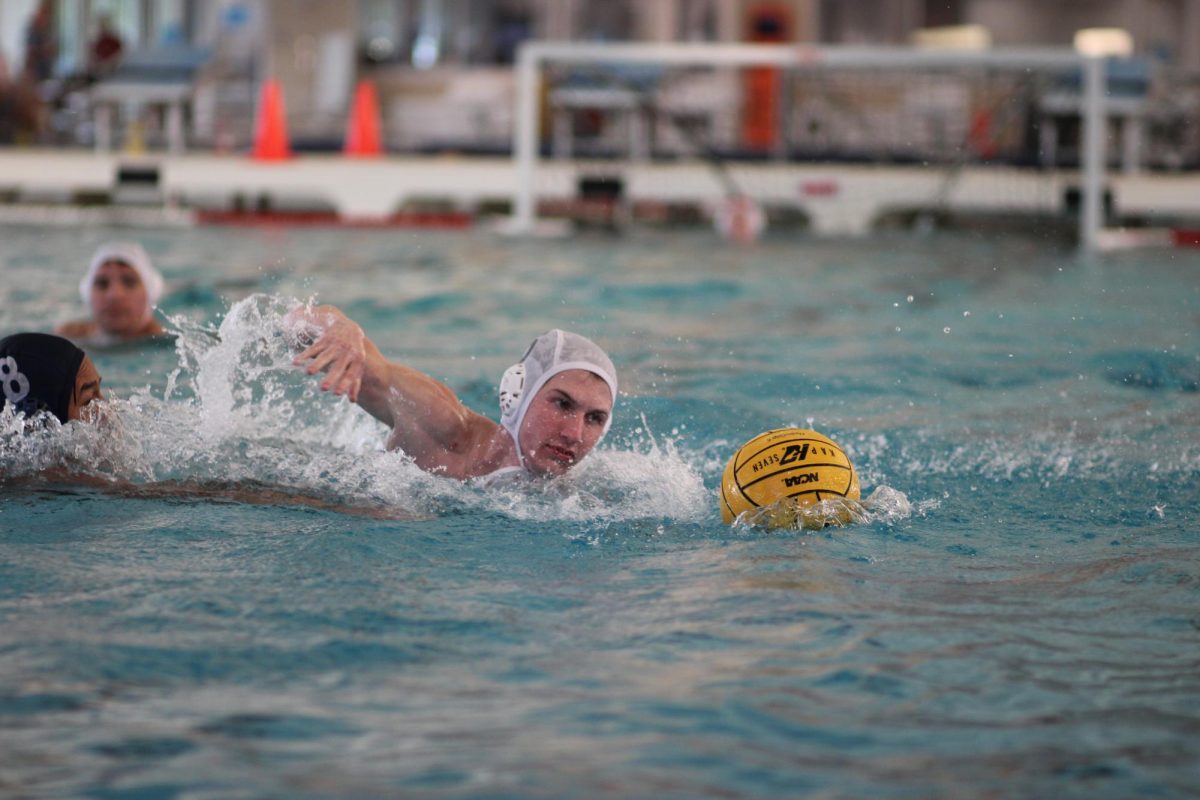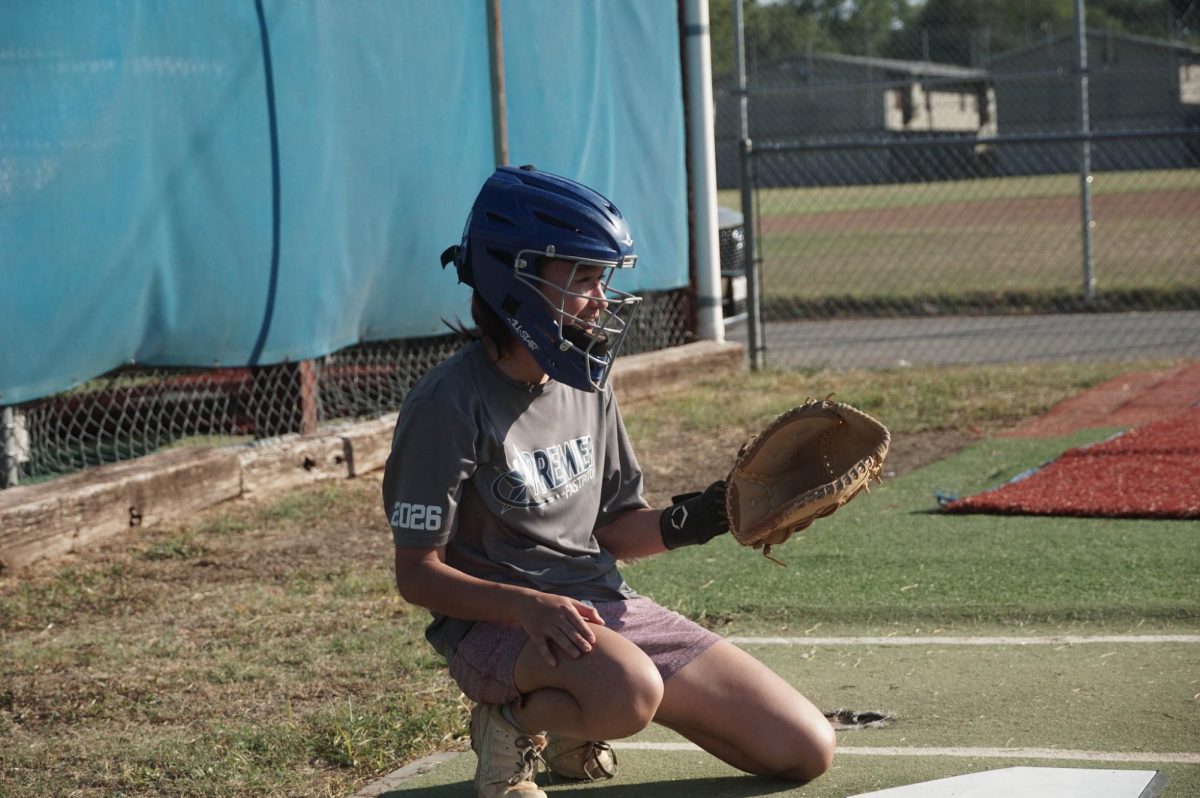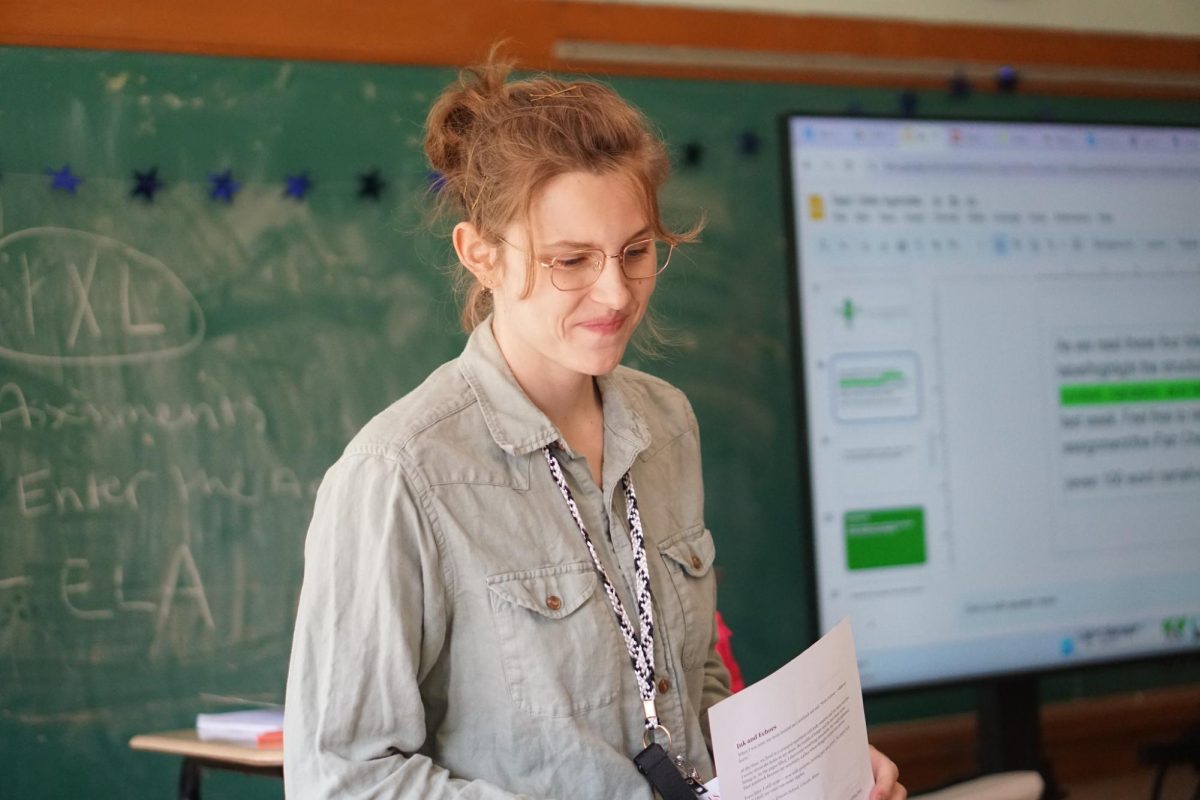Entering portable four after school on Friday was just like feeling at home, if home was people gathered around a table, discussing rules and shouting jokes. Going to the portable every Friday has been something I’ve done routinely for the past year, and I’ve grown comfortable with everyone that comes to play some D&D.
With its growing popularity in references from Stranger Things (a popular 1980’s themed Netflix show), popular podcasts(The Adventure Zone, Greetings Adventurers!, Critical Role), Tabletop-Role-Playing Games (TRPGs) and Dungeons and Dragons (D&D) in particular,are getting more of an audience at McCallum. People are starting to wonder what it’s all about. Unknown to some, McCallum has had a TRPG club since 2011 where teacher’s assistant Dave Insel, preferred to be called Dave, has been helping students experience and enjoy role-playing games, including D&D and other games. With these games, the goal for everyone is to play a character, go on adventures with friends and have a great time. The TRPG club at McCallum has meetings after school every Friday in portable four, from 4:30 p.m. to 5:45 p.m.
Dungeons & Dragons is arguably the most well-known TRPG. It was made in 1974 by Gary Gygax, the game published and owned by a near-bankrupt company called The Sims Resource (TSR), but soon its rights were sold to Wizards of the Coast, a gaming company who has transformed the game into something less obscure and more enjoyable for new players of any age. Over the years, the game has had 6 official different editions, but the latest version of D&D is called the 5th edition due to there being a 3.5 edition (very important).
“Overall, 5th edition is the best in terms of how easily you can learn the game,” said Dave. “Its the best put-together from everything I know, and I’ve just about read everything and played anything that’s been put out there…”
D&D is an open-ended role-playing game, containing battle mechanics for when a group of players (also known as adventurers, collectively known as a ‘party’) fight evil creatures. The game also has role-play mechanics for when the party deals with diplomatic situations, traveling, etc. New players are usually provided the rules and learn on-the-go with more experienced adventurers, which is truly interesting and fun, if a bit overwhelming at first. The overall results of what the party does and the adventure they take place in is decided by a Dungeon Master (DM), who is usually an experienced player who creates the setting and story that the adventurers take place in. The rules provide crucial information of the environment and battle mechanics to help the DM to make these decisions, as well as act as one of many that the party interacts with throughout their campaign, aka the adventure.
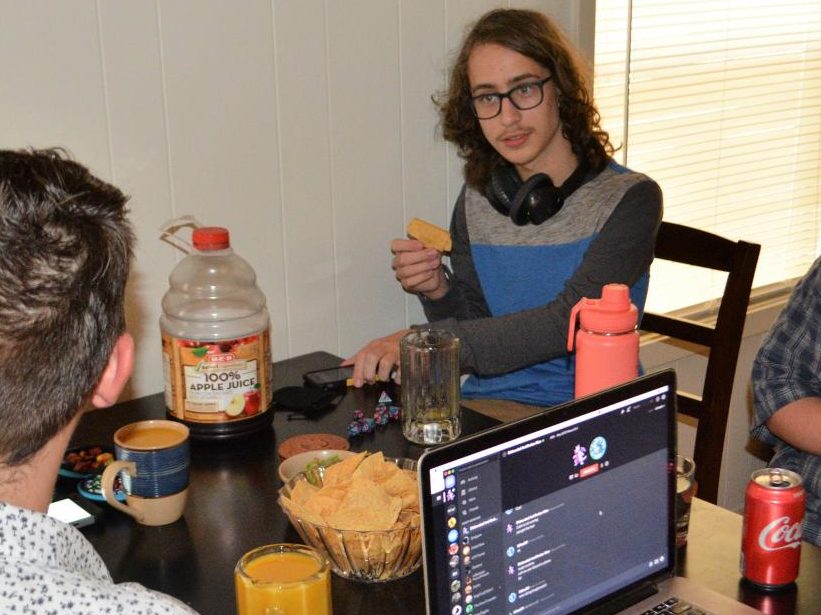
Dave recommends to those trying out D&D, “Overall, 5th edition is the best in terms of the terms of how easily you can learn the game. It’s the best put-together from everything I know, and I’ve just about read everything and played anything that’s been put out there…”
At McCallum, D&D has been one of the main systems used to play in the TRPG club. Dave Incel, prefered to be called Dave, has worked at McCallum since 2003, and with AISD for 23 years, so he knows his way around the campus.
“I’ve been a teacher’s aid for a long number of years, but at the moment I’m in my last year of online classes to get a degree in order to be a teacher, so next year I’m hoping to move up to be an actual teacher… Yeah, it’s been a lot. I’ve been working full time here, with another part time job on occasion, as well as full-time course work for the past four years now, so I’m excited and ready to get my life back, to do more stuff that I want to do, that I need to do.”
In 2011, Dave discovered a group of students who had been playing the same campaign at school for three years, after school in the computer lab, without a staff sponsor. He started to show up, joining their campaign and becoming the official staff sponsor of the club. Since then, the amount of people in the club has fluctuated, due to people graduating, but at the moment the club has a healthy amount of people, and they are very welcoming and encourage students to give it a try and see if it’s something they enjoy.
“There were some quiet years, but sometimes we would get so loud that we received complaints, so we moved to the portables where it didn’t matter as much. I’ve had as much as 19 or 20 people in the club, where we’d break into two or three groups. Now, that was fun…”, Dave explained.
Once someone has mastered the basics of the game and have gotten comfortable acting their characters, they could look into DM-ing. Dungeon Masters generally have to do twice as much preparation as the characters would have to do, if they were to create an elaborate game, but this doesn’t have to be the case. There are DM’s who plan out every course, any and every detail accounted for, while others, usually more experienced and comfortable with improv, come up with the story on-the-go. Alex Shieber, one of the few seniors in the club, has his opinions on DM-ing and how much preparation should go into it.
Alex prefers having key elements and plot events planned out, but still allows players to accomplish what they want to. “…I would create an outline, a premise, of where you are, a main plot, and have some minor events and major events occur to make the world be more real. Otherwise, I’d let them do side-things or whatever they’d need to have fun, because that’s what’s both fun to me and to my players.”
Whether you play it planned-out or improvised, D&D and many other TRPGs are designed for everyone to have fun and make friends, as well as weave a story with characters doing outrageous things and character-deaths that actually make people emotional, building to the story you shared with each other and the stories you can tell once the campaign is finished, and that’s why those heart warming and breaking moments bring people to play D&D.


